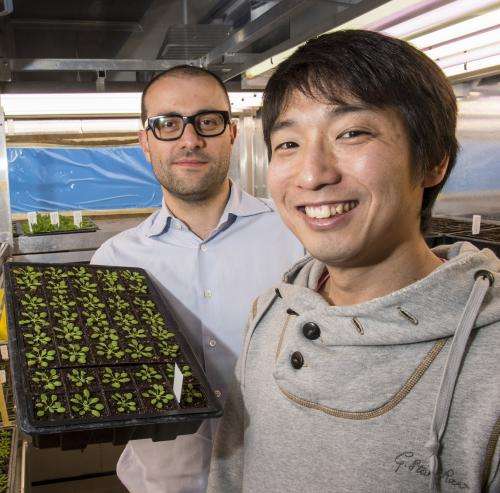Missing link in plant immunity identified

After a 30-year search, scientists have uncovered how an enzyme critical to plants' rapid immune response against microbes is activated.
"The insights will open up new ways to improve disease resistance and stress tolerance in plants," says Professor Cyril Zipfel of The Sainsbury Laboratory in Norwich.
The enzyme, the NAPDH oxidase RBOHD, triggers a rapid generation of signalling molecules derived from oxygen that are believed to be detrimental to microbial growth. The newly-discovered way this enzyme is activated, by a protein (called BIK1) fills a gap in how plants perceive a threat and how signals are activated to trigger an immune response.
The work, published in the journal Molecular Cell, was conducted by scientists from The Sainsbury Laboratory and from RIKEN in Yokohama in Japan, whose focus on the interactions between plants and microbes can spark innovation in tackling the world's most important crop diseases.
"Understanding how this enzyme was rapidly activated was an important missing link in our knowledge of plant immunity," says Professor Zipfel.
The scientists revealed that the enzyme is regulated by processes some of which are dependent on calcium and some of which are independent of it.
"Our findings lay the ground for future research investigating how these processes interact and how they switch on and off the molecules essential to defence and stress responses."
Journal information: Molecular Cell
Provided by Norwich BioScience Institutes











.jpg)



